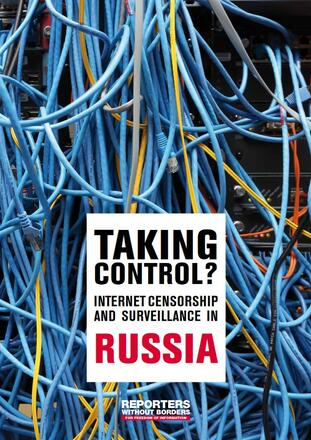
This overview shows how critical editorial teams are put under pressure in Russia and how the authorities attempt to silence individual journalists and bloggers. It also provides information about new online media that report on societal ills against all odds, and it raises the question about the relevance of international platforms for the freedom of expression in Russia.
Beside a chronology of laws restricting press freedom and freedom of expression, it gives an overview of changes of ownership and dismissals, underlining the fact that every user risks prosecution.
Data about economic developments help understand the situation. More than three quarters of the population in Russia are online regularly, the Russian Association for Electronic Communications
(RAEC) estimates the number of active internet users to be roughly 93 million. In 2018, the digital economy accounted for roughly 4 percent of Russia’s gross domestic product, an increase of 11 percent
compared to the previous year, and the upward trend is continuing.
Among the recommendations, there are calls to the Russian government, to the governments of the European Union and to companies such as Facebook, Twitter and Google. Some recommendations are meant for journalists and media workers worldwide.
Tags: Russia Surveillance CensorshipThe content of this article can be used according to the terms of Creative Commons: Attribution-NonCommercial 4.0 International (CC BY-NC 4.0) . To do so use the the wording "this article was originally published on the Resource Centre on Media Freedom in Europe" including a direct active link to the original article page.

